Explore The Cathedral's Garden
Terraced into the south side of Mt. St. Alban, the walled Garden is visited by thousands every year. It is the most intensely cultivated of the 57-acre Cathedral Close, land that once was the home and garden of George Washington's registrar of the United States Treasury.
As one sees the [Bishop's Garden] from the higher level of the entrance walk, [it] suggests the charm of its lights and shadows and density of leafage though no photographs can give a hint of its color and fragrance or do justice to the beauty of its quiet atmosphere: "a space of peace" set apart forever from the rush of the every day world.
— Florence Bratenahl (Bishop’s Garden landscape designer)
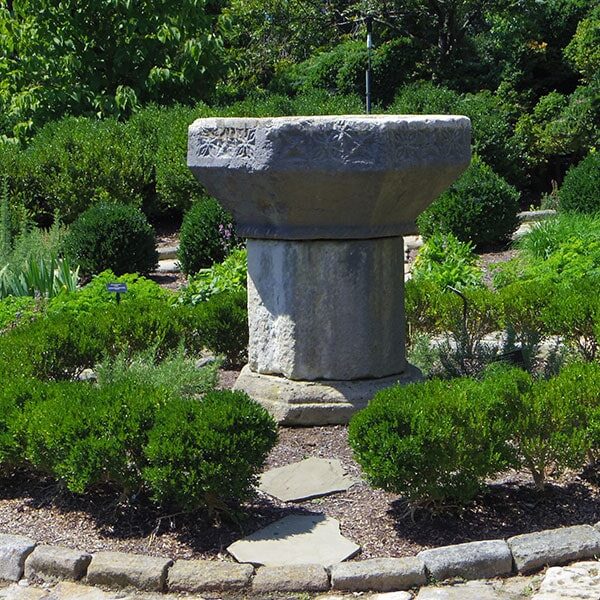
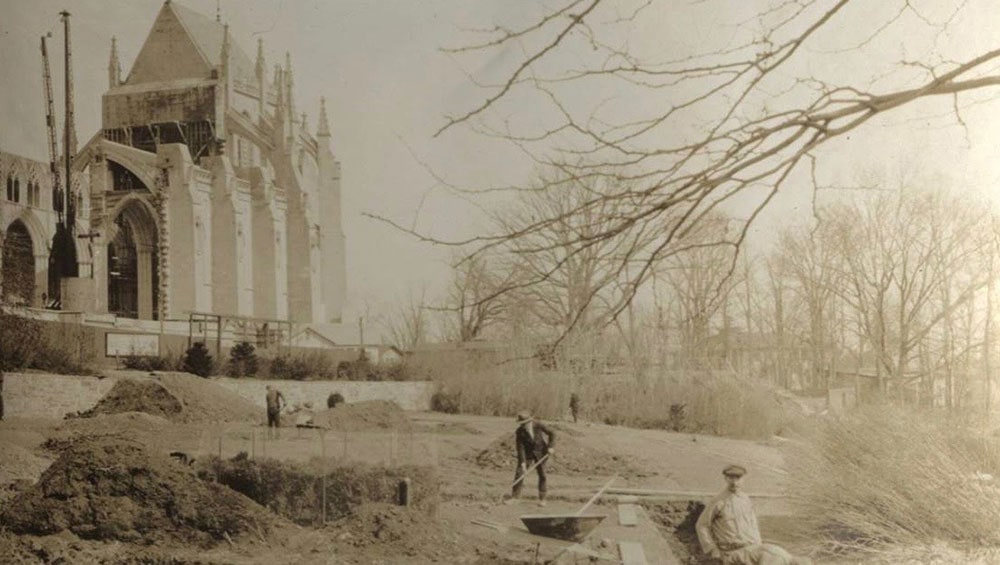
The Design
The original plan of the Cathedral Close was developed by Frederick Law Olmsted, Jr., from 1907 to 1927. Olmsted's design has endured because its main features continue to meet the aspirations and needs of a Gothic-style Cathedral. Later landscape designers (such as Florence Brown Bratenahl) made important contributions to the Cathedral landscape. Mrs. Bratenahl designed many of the focal elements of the garden – such as the St. Catherine Pool and the Norman Court.
The Olmsted-Bratenahl vision created a garden suitable for a 14th century Gothic cathedral, with plants of historical interest, plants of the Bible and Christian legends along with plants native to the mid-Atlantic region. Mature plant material was located and moved to the Cathedral grounds. Boxwood from George Washington's Hayfield Manor, and from Ellerslee Plantation in Virginia, was planted in the Bishop's Garden. The Garden’s cedars and fig trees trace their origins back to the Holy Land. Medieval sculpture from George Gray Barnard’s collection was acquired, and a 9th century baptismal font and 15th and 16th century bas-relief were incorporated into the Garden.
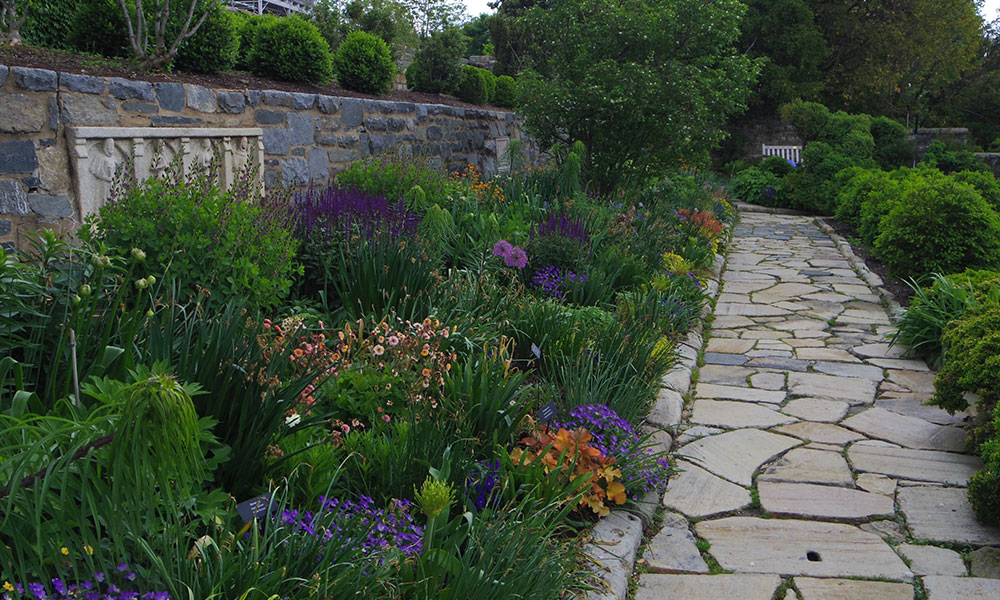
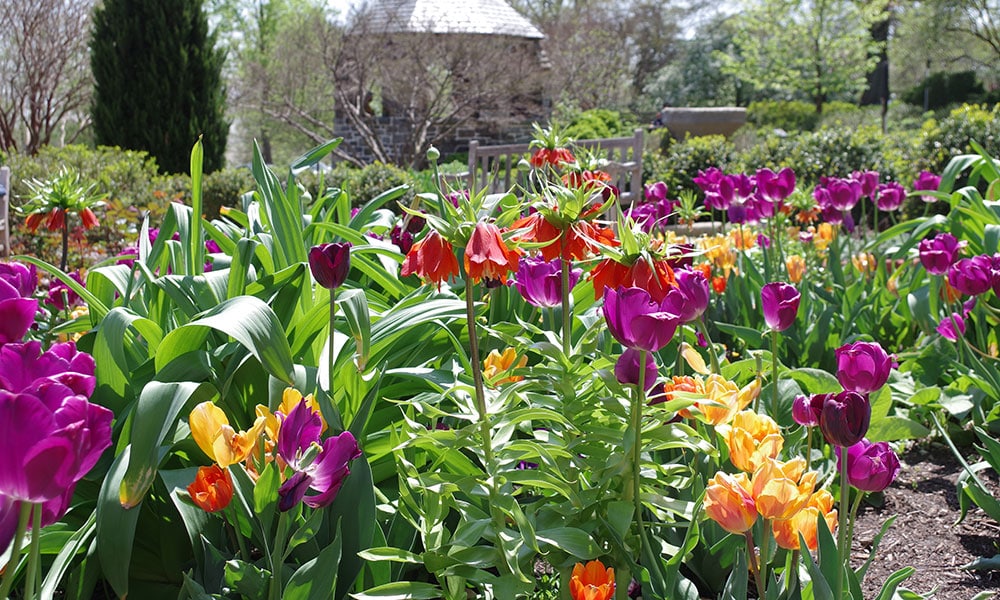
The original design of the Bishop's garden represented a private garden "out back" and accessible from the Bishop's house. It evolved to become a more public garden with a larger entrance through the Norman Court. The Bishop's garden was completed for the General Convention of the Episcopal Church, held in Washington in October 1928. Between the years 1925-1928, gifts from forty-four garden clubs from all over the country, along with many individual donations, helped to make the Bishop’s Garden possible.
In 2013 a re-dedication of the Bishop’s Garden took place to celebrate the completion of three years of redesign, restoration, and replanting – all in keeping with the Garden’s original design. The Garden continues to evolve as plantings are replaced to accommodate a changing climate.
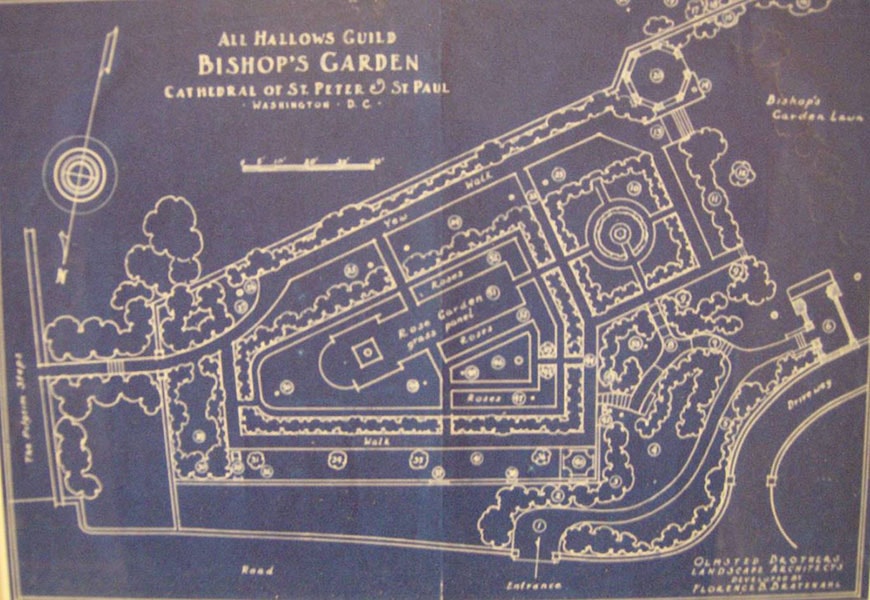
Help us Keep the
Gardens Growing
Partner with us to ensure that the 57 acres of gardens and grounds surrounding Washington National Cathedral continue to be a haven of peace and refreshment in the midst of the Nation’s Capital.


